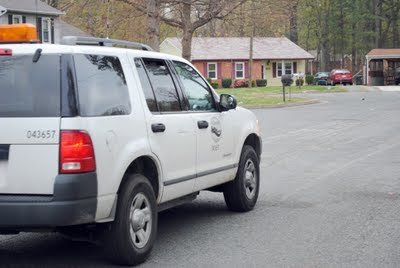Imagine driving by every single home, apartment and business in the city of Richmond , Henrico County all the way to the Goochland county line, and parts of Hanover
That’s what the employees of the city of Richmond
Years ago, it was an even more daunting task when meters were manually read by gas and water service technicians who had to walk into every yard to read the meter. With the advent of computers, a city vehicle equipped with a mobile data collector can record the readings transmitted by antennas on gas and water meters as the vehicle slowly passes the location.
As each neighborhood is scanned block by block, the computer shows the meters that were missed and each missed location is immediately revisited. If the meter still doesn’t register, a gas and water service technician visits the location the following day to investigate and fix the problem. Typical problems include old antenna batteries – they have an average lifespan of 7-10 years, the water meter well is flooded from a recent rain, or the customer has cut or damaged the wire to the antenna.
A typical day’s route might drive by anywhere from 5,000 to 20,000 meters and take as long as 10 hours to complete. On some routes, it’s necessary to drive through alleyways behind houses or pull into driveways in order to pick up the signal.
Typical types of antennas found on water and gas meters. |
A service technician loads a computer with the day's route on it into the data collector strapped to the passenger seat. |
Instead of a service technician in your yard, you're more likely to catch a glimpse of a city vehicle driving slowly down your street on meter-reading day. |



If the City invests in a fixed-network system, these meters could be read hourly - every hour, every day, without the high cost and carbon footprint of truck rolls. This would also allow the City to promote conservation of water and gas, better identify leaks in the system, and introduce Time of Day pricing to encourage conservation and equitable spread of costs to deliver services.
ReplyDeleteI like the above comment... I want the city to be as efficient and inexpensive as possible to operate.
ReplyDelete